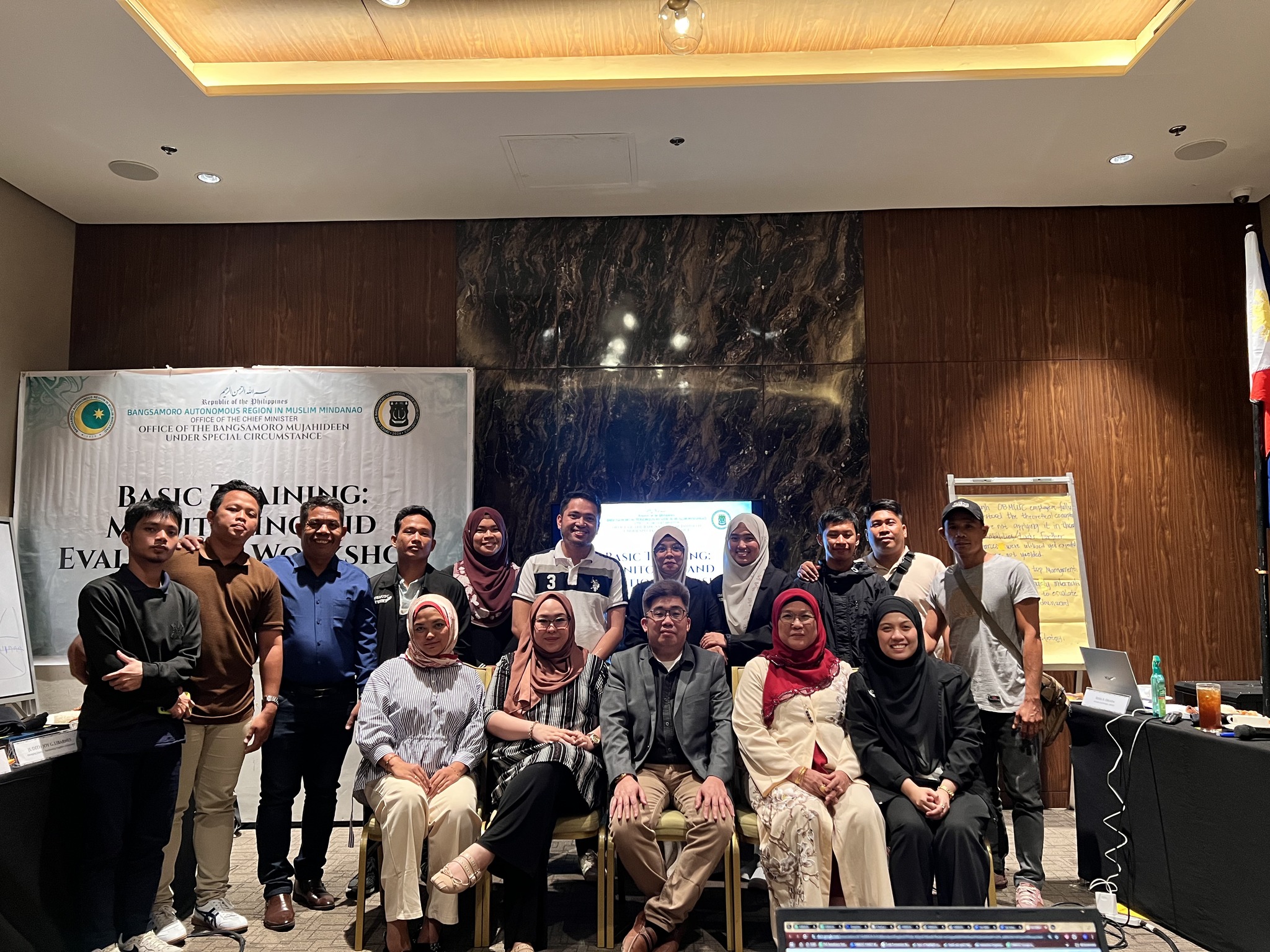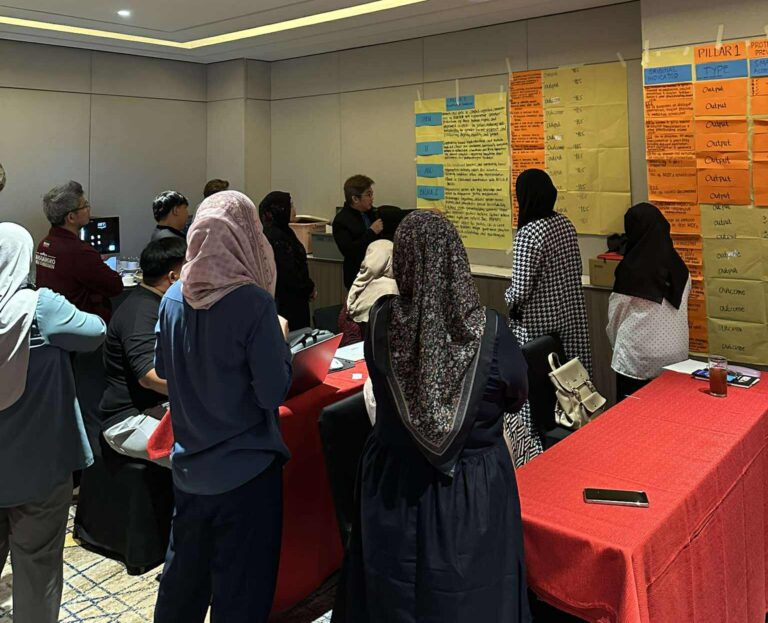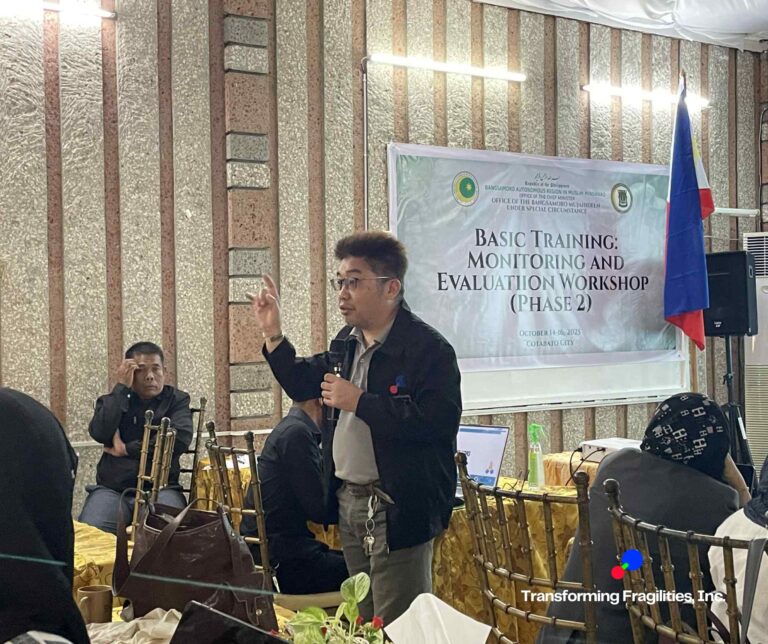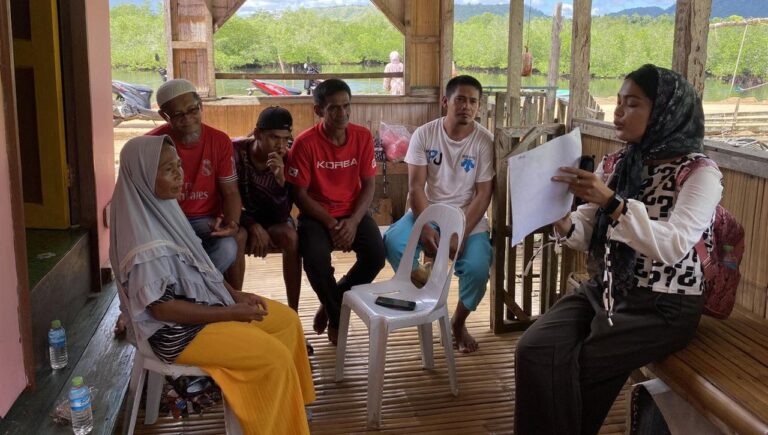GENERAL SANTOS CITY, Philippines – July 2, 2025 – The Office of Bangsamoro Mujahideen Under Special Circumstance (OBMUSC) has taken a significant stride towards strengthening its programmatic effectiveness and accountability, as key staff successfully completed a rigorous 3-day Basic Monitoring and Evaluation (M&E) Training Workshop held from June 14-16, 2025, at the Grand Summit Hotel.
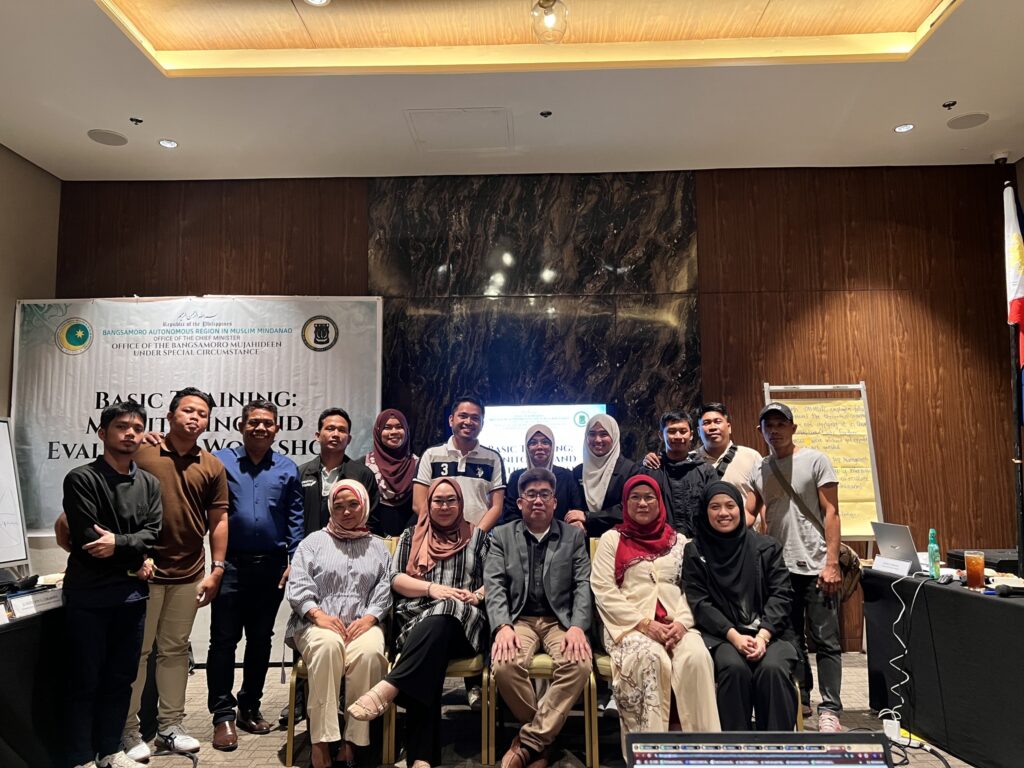
The intensive workshop was facilitated by Mr. Ahmed Harris R. Pangcoga and Ms. Judith Joy Libarnes of Transforming Fragilities, Inc.. Their guidance equipped OBMUSC personnel with foundational knowledge and practical skills crucial for robust program oversight and M&E.
The training delved deeply into the core pillars of MEAL (Monitoring, Evaluation, Accountability, and Learning), providing participants with a holistic understanding of how to translate their strategic plans into measurable results. Day one focused on the Foundations of MEAL and an introduction to Data Management Systems, emphasizing the critical role of data collection and quality. Participants then moved on to MEAL Framework and Plan Development on day two, learning to design logical frameworks and actionable MEAL plans directly from OBMUSC’s Work and Financial Plans (WFPs). The final day was dedicated to Advanced Data Application, including practical data analysis, the development of M&E tools, and Post-Distribution Monitoring (PDM).
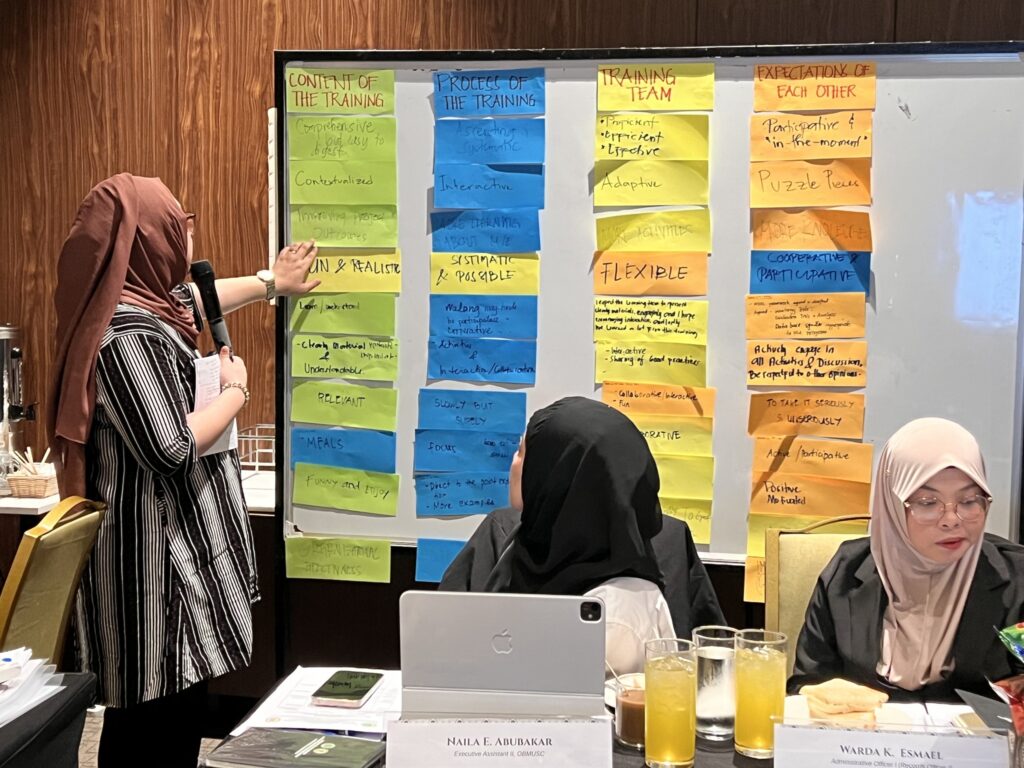
Mr. Pangcoga highlighted the transformative potential of the training, stating, “Our goal was to empower OBMUSC staff to move beyond merely tracking activities. We focused on instilling a change-based M&E lens, enabling them to systematically measure the actual shifts and improvements in the lives of beneficiaries. This means understanding not just what was delivered, but what difference it truly made.”
Ms. Libarnes underscored the importance of practical application. “Investing in standardized data collection tools and a centralized data management system is paramount. These are the dual engines for both performance-based MEAL – ensuring efficiency and accountability in operations – and change-based MEAL – allowing us to capture immediate, midterm, and long-term changes on beneficiary mujahideen and their communities. This integrated approach is crucial for OBMUSC to truly demonstrate its value.”
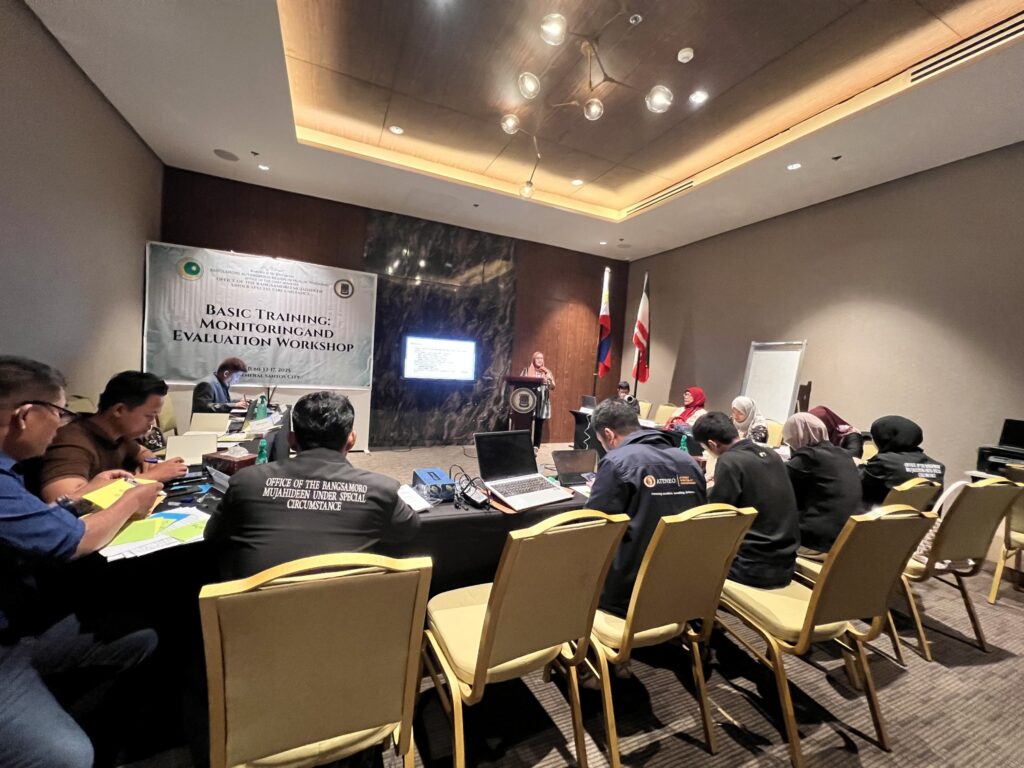
Participants actively engaged in hands-on group activities, including diagnosing accountability gaps, developing data collection questionnaires, and populating MEAL plan templates with OBMUSC-specific indicators. The training also facilitated a candid self-assessment of OBMUSC’s current monitoring and evaluation (M&E) capacities, identifying key strengths, such as the staff’s eagerness to learn and existing basic data tools, alongside areas for improvement, including the need for formalized frameworks and enhanced data standardization.
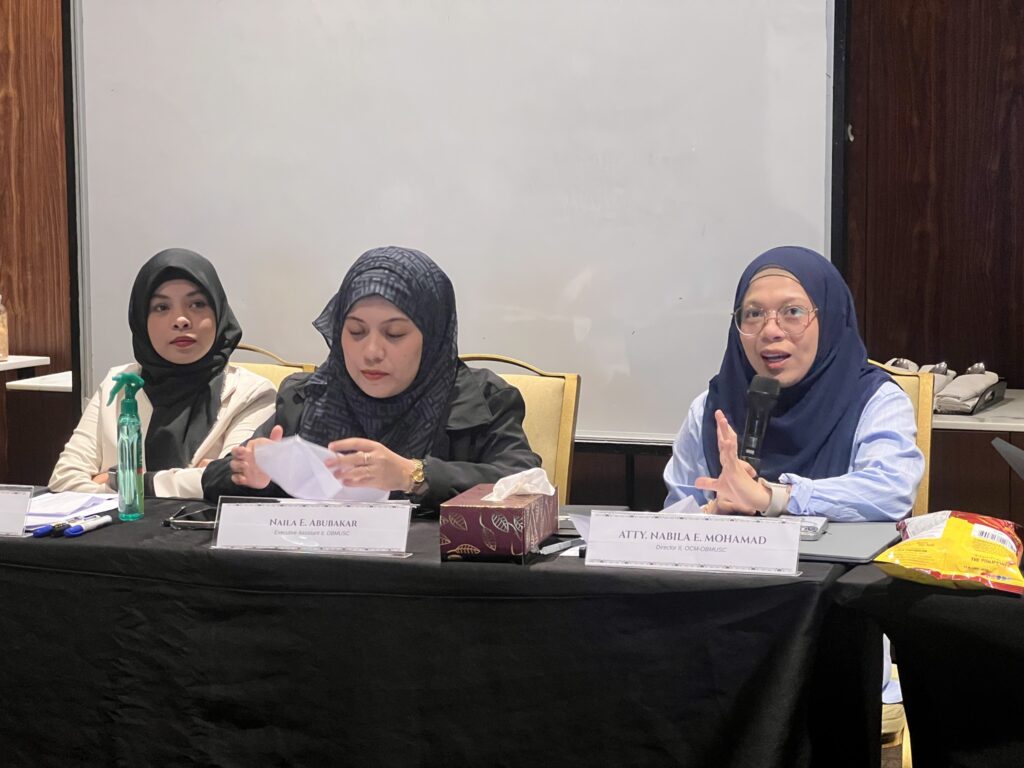
This comprehensive training marks a pivotal moment for OBMUSC, laying the groundwork for a more efficient, effective, and accountable organization. By integrating these enhanced MEAL capabilities, OBMUSC is poised to make more informed, data-driven decisions, optimize resource allocation, and ultimately maximize its positive impact on the Bangsamoro Mujahideen under special circumstance and their families in the Bangsamoro region.

